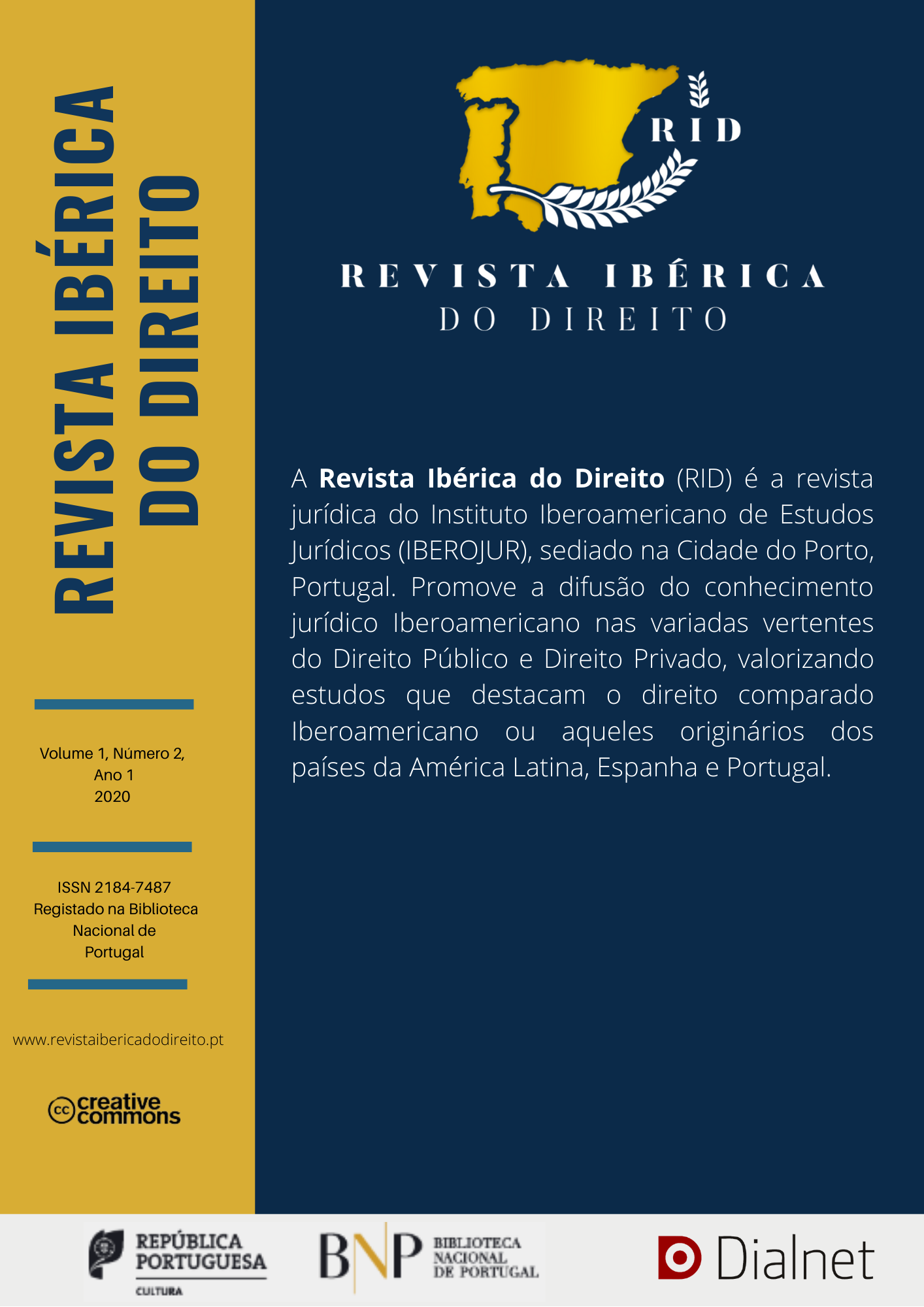Notes on recent developments in the Portuguese electronic process in civil procedure
Keywords:
E-justice, proceedings dematerialisation, electronic procedure, due process, procedure guaranteesAbstract
In the Portuguese legal system, a gradual process of application of new information and communication technologies (ICT) to the service of justice has been developed. In order to obtain rapid results in the satisfaction of effective judicial protection, it has implemented the dematerialization of the process and the electronic processing in judicial processes, as aspects of e-justice, also defended at the level of the European area of justice. As the new paradigm of justice emerges, where the idea of "digital by definition" prevails, expressed in the e-Justice Strategy for 2019-2023 and in the European e-Justice Action Plan for 2019-2023, the Member States of the European Union are following this movement. Recently, in Portugal, the amendment of the regime for the electronic processing of judicial proceedings (Decree-Law nr. 97/2019, of July 26th) proved this intention. Nevertheless, it is essential, on behalf of the citizens' guarantees, that the digital phenomenon do not compromise justice and the citizens' guarantees. In this context, the purpose of the present study is: i) present the European framework of e-justice, in the dematerialisation of the process; ii) analyse the essential features of the recent amendments to the Portuguese electronic process; iii) evaluate its compatibility with procedural guarantees. The analysis of the European and domestic legal frameworks, based on general procedural principles and procedural guarantees, shows that the dematerialisation of the process and the electronic procedure are well developed in domestic disputes and that it is expected to be further developed in cross-border disputes, in particular through interoperability. However, all this development is still encountering difficulties and will have to be implemented with due regard for procedural guarantees.
References
BEERGREHN, Ulrika, in “Conselho da União Europeia, Direito Civil, Cooperação Judiciária Europeia”. Luxemburgo: Serviço das Publicações Oficiais das Comunidades Europeias, 2005, pp. 261-270.
SOUSA, M. Teixeira, “A (muito estranha) nova redacção do art. 560.º CPC”, Blog do IPPC, 2019, disponível em:
https://drive.google.com/file/d/17VPaVk9OZlK30h8cd8nTWWxCcBwmmclQ/view [consultado em 04.06.2020].
– “As recentes alterações na legislação processual civil”, Julgar On-line – Revista da Associação Sindical dos Juízes Portugueses (ASJP), Dezembro de 2019, disponível em: http://julgar.pt/wp-content/uploads/2019/12/20191216-ARTIGO-JULGAR-As-recentes-altera%C3%A7%C3%B5es-na-legisla%C3%A7%C3%A3o-processual-civil-Miguel-Teixeira-de-Sousa-v2.pdf [consultado em 04.06.2020].
Decisão do Conselho de 28 de Maio de 2001 (2001/470/CE), publicada no JO L 174 de 27.6.2001.
Relatório da Comissão ao Conselho, ao Parlamento Europeu e ao Comité Económico e Social Europeu sobre a aplicação da Decisão n.° 2001/470/CE do Conselho que cria uma rede judiciária europeia em matéria civil e comercial, SEC (2006) 579 (COM/2006/0203 final de 16.05.2006).
Conclusões do Grupo da Informática Jurídica (Legal Data Processing) no Conselho de Justiça e Assuntos Internos, JUSTCIV 159, 5 de junho de 2007, disponível em
http://register.consilium.europa.eu/doc/srv?l=EN&f=ST%2010393%202007%20INIT .
Comunicação da Comissão sobre o “Rumo a uma estratégia europeia em matéria de justiça electrónica”, COM(2008) 329 final.
Resolução do Parlamento Europeu sobre a Justiça Electrónica, de 18 de Dezembro de 2008 [2008/2125(INI)].
Plano de Acção Plurianual 2009-2013 sobre Justiça Electrónica Europeia (JO C 75 de 31.3.2009).
Resolução do Parlamento Europeu sobre Justiça Electrónica na sessão plenária de 22 de Outubro de 2013 [2013/2852 (RSP)].
Projecto de Estratégia Europeia de Justiça Electrónica para 2014-2018 (JO C 376 de 21.12.2013).
Plano de Acção Plurianual 2014-2018 sobre Justiça Electrónica Europeia (JO C 182 de 14.6.2014).
Plano de Acção para a Justiça Electrónica Europeia para 2019-2023 (JO C 96 de 13.3.2019).
Guidelines adopted by the Committee of Ministers of the Council of Europe on 30 January 2019 and explanatory memorandum, disponível em https://search.coe.int/cm/Pages/result_details.aspx?ObjectId=0900001680902e0c .
Downloads
Published
Issue
Section
License
Copyright (c) 2020 Revista Ibérica do Direito

This work is licensed under a Creative Commons Attribution-NonCommercial-NoDerivatives 4.0 International License.
Este trabalho está licenciado sob uma Licença Creative Commons Attribution 3.0


